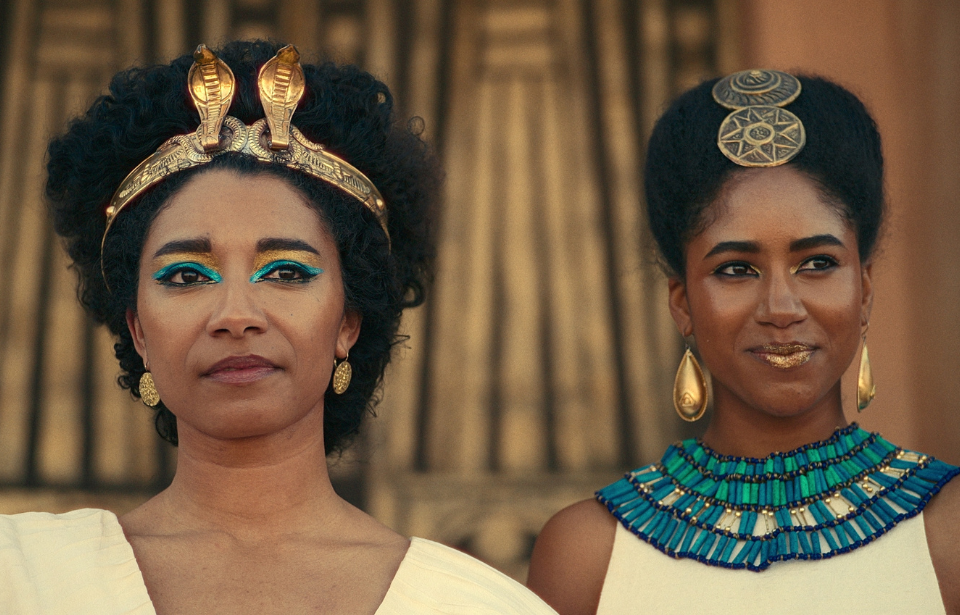Netflix’s new docudrama series Queen Cleopatra sparked uproar with the casting of British actress Adele James as Cleopatra VII, the final ruler of Ptolemaic Egypt. The debate regarding Cleopatra’s ethnicity and skin color, which has lasted for decades among scholars and the general public, was reignited. An Egyptian attorney demanded legal action be taken against Netflix and an Egyptian broadcaster has said it will now produce its own big-budget documentary.
Shortly after the film’s release, a Dutch museum said its archaeologists had been banned from Egypt over an exhibition linking Beyonce and Rihanna to Queen Nefertiti.
The trailer’s release sparked controversy
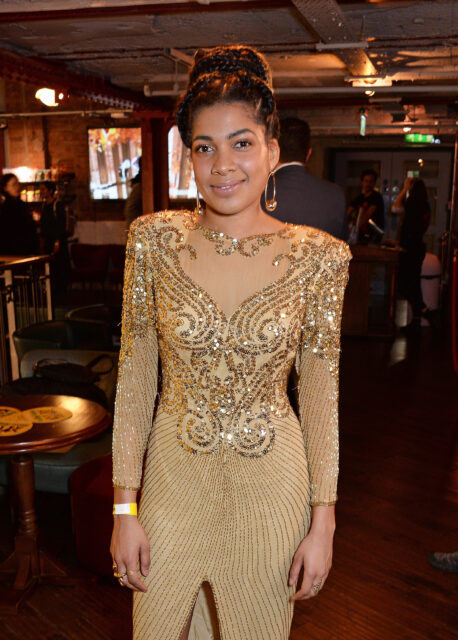
Upon the trailer’s release, Egyptian lawyer Mahmoud al-Semary demanded legal action against Netflix, to the extent that the series – which he described as a “crime” – not be shown in Egypt. The complaint stated, “Most of what [the] Netflix platform displays do not conform to Islamic and societal values and principles, especially Egyptian ones.”
The complaint continued, saying that the docudrama contradicts Egyptian history and, as reported in the Egyptian Independent, “promotes Afrocentrism which aims at distorting and obliterating Egyptian identity.”
Others have made similar claims, such as former Egyptian Antiquities Minister Zahi Hawass, who described the casting for the series as “falsifying facts” and the whole series as “completely fake. Cleopatra was Greek, meaning that she was light-skinned, not Black.”
Reactions from those involved in the production
Initially, Netflix gave no response, but later they quoted the show’s executive producer, Jada Pinkett Smith, saying the show was “a nod to the centuries-long conversation about the ruler’s race.”
Pinkett Smith continued: “We don’t often get to see or hear stories about Black queens, and that was really important for me, as well as for my daughter, and just for my community to be able to know those stories because there are tons of them.”
Adele James, the actress playing Cleopatra, took to Twitter to post, “If you don’t like the casting, don’t watch the show. Or do and engage in (expert) opinion different to yours.”
In an essay published in Variety in April, director Tina Gharavi passionately defended the casting choice for the series. She argued that the historical queen’s appearance resembled James more than Elizabeth Taylor, who famously portrayed the ruler in the acclaimed 1963 epic film Cleopatra, which received an Oscar.
Enraged broadcaster to produce a counter-documentary
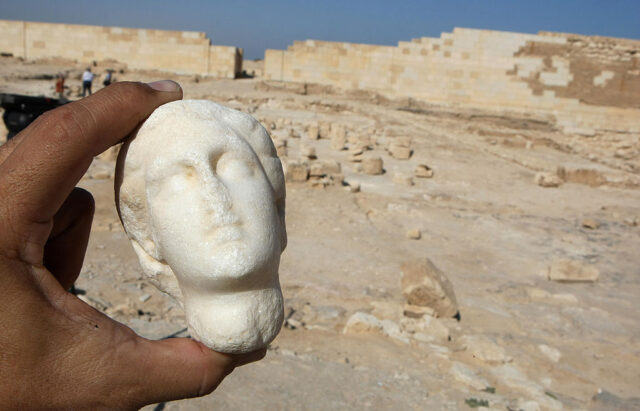
In response to the series, a subsidiary of Egypt’s state-affiliated United Media Services announced that they are beginning production of a big-budget documentary focused on an authentic account of Queen Cleopatra. In a statement, they said, “Preparations have begun to produce a documentary about Queen Cleopatra VII, daughter of Ptolemy XII, known as Cleopatra, the last king of the Ptolemaic family, that ruled Egypt in the wake of the death of Alexander the Great.”
According to the statement, the iconic ruler’s story will be told using “the highest levels of research and scrutiny.”
Dismal audience reviews
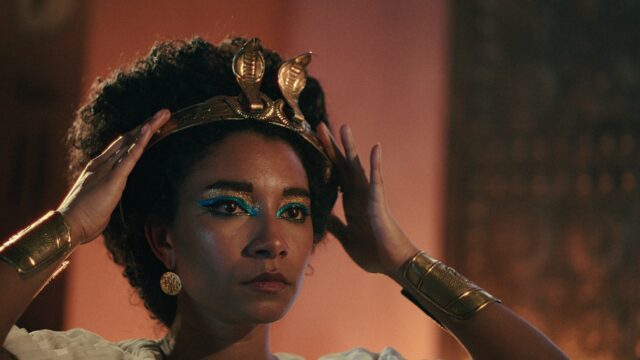
Upon its release, Queen Cleopatra received the lowest audience rating in the history of TV shows on Rotten Tomatoes, according to Forbes. The series received just a one percent approval rate.
“It has not just the lowest audience score in Netflix history, it has essentially the lowest audience score possible on Rotten Tomatoes, a 1%. Not a 10%, a 1%,” wrote Paul Tassi. As of May 19, the score had ticked up to 3 percent, with more than 10,000 ratings. Many of the reviewers stated that they tuned in as a result of the negative press.
There are some glowing reviews, however, including this one: “I loved that they embraced the uncertainty of Cleopatra’s line to give us a fresh insight into what she might have been like and not rely on stereotypes.”
The great Cleopatra debate
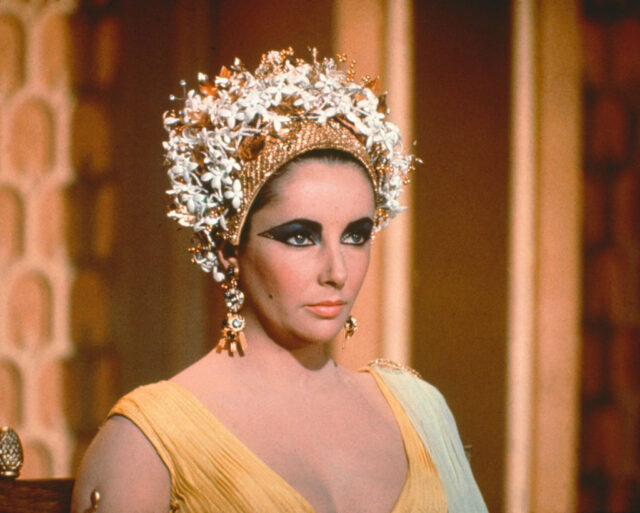
Cleopatra’s race has been the cause of debate for many years. For most scholars, there is a consensus that Cleopatra was mainly of Macedonian Greek ancestry and the final Hellenistic ruler of the Ptolemaic Kingdom of Egypt. While many scholars admit that Cleopatra most likely was not only of Greek ancestry, others believe that she probably had little African ancestry.
No matter what one’s stance is on this debate, or even if you’ve never thought about it, one thing is clear. Cleopatra is an incredibly important figure in history. Her story, and her part in history, deserve to be examined, studied, told, and retold.
Queen Nefertiti is in the news for similar reasons now
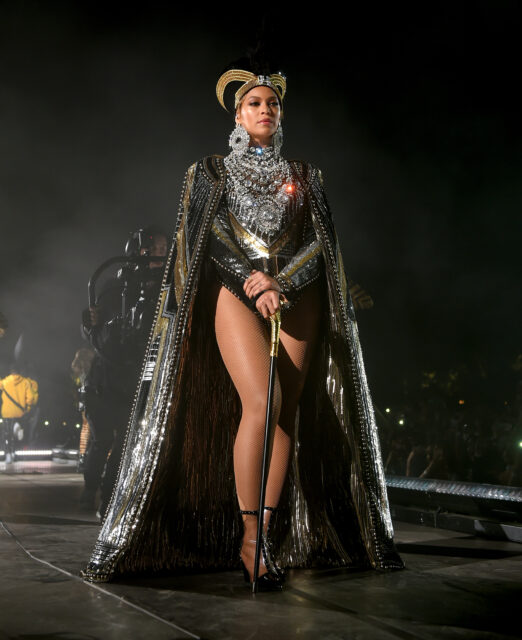
A Dutch museum announced that its archaeologists have been barred from conducting excavations at an Egyptian site due to an exhibition that portrays Black American singers and performers such as Rihanna and Beyoncé as the rulers of ancient Egypt
The National Museum of Antiquities in Leiden responded to accusations from Egyptian authorities, who accuse the museum of “falsifying” history through its showcase of artists such as Beyoncé, Miles Davis, Lauryn Hill, and Nas.
The museum rejected the accusation as “unfounded” and said it was disappointed in the ban. Officials added a page to the museum’s website to address the “commotion.”
Egyptian media previously reported that the exhibition enraged a local antiquities expert, who criticized it as supporting “Afrocentric theory.”
More from us: New Understanding of Ancient Egyptians Practically Puts Researchers in the Embalming Room
The museum also said that it had received racist and offensive comments through social media since the exhibition’s opening.
